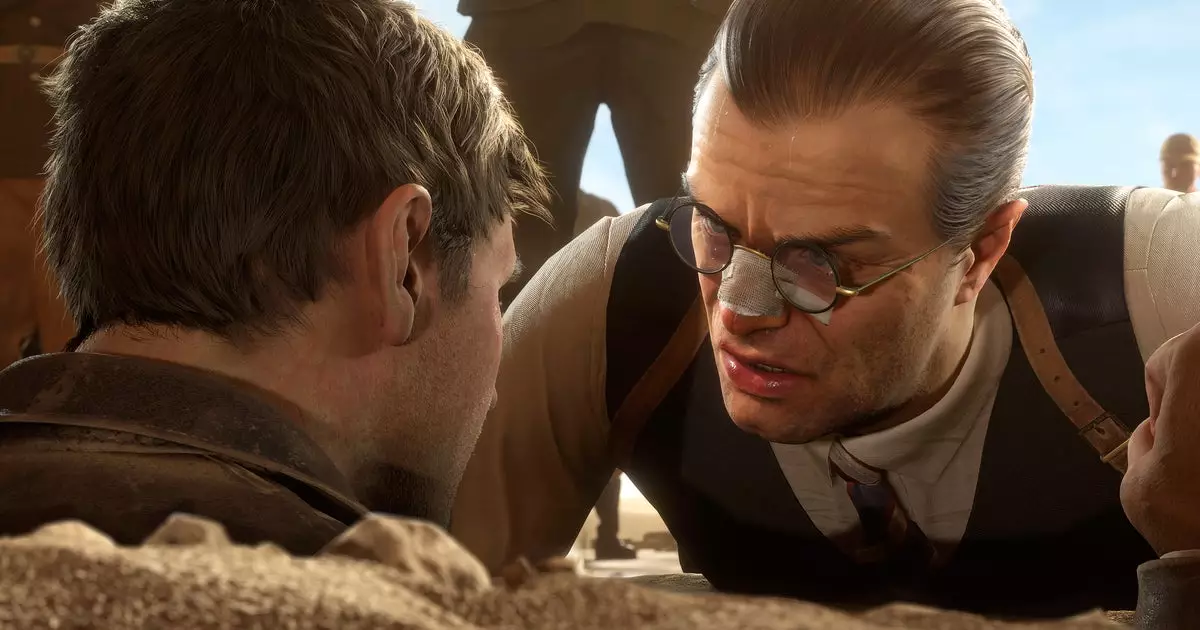In an era where video games have evolved into complex narratives and immersive storytelling experiences, the relationship between escapism and historical representation is more scrutinized than ever. The introduction of titles like “Indiana Jones and the Great Circle,” produced by MachineGames and Bethesda, raises significant questions about how games navigate sensitive historical subjects, particularly regarding the portrayal of notorious figures like Nazis. Indiana Jones, a character strongly defined by his aversion to the German National Socialist Party, embodies the struggle between entertainment and moral responsibility, especially as we step into this modern virtual landscape.
The visual and interactive medium of video games empowers players to engage directly with avatars of good and evil. In “Raiders of the Lost Ark,” Indiana Jones’ vehement condemnation of Nazis — marked by his exclamation, “Nazis? I hate these guys!” — is both entertaining and indicative of his heroism. Yet, this statement can seem overly simplistic. The franchise has had its moments that flirt with moral ambiguity, such as when Jones inadvertently finds himself in bed with a Nazi or when he dons the attire of an SS officer to get a coveted autograph. These instances beg the question: Does the character’s anti-fascist stance lose credibility when mingling with the very ideology he despises?
In “Indiana Jones and the Great Circle,” players engage in combat against countless antagonists representing the far-right. However, the game’s creators felt compelled to include a disclaimer that emphasizes their game’s intentions—asserting that its content does not promote or glorify Nazi ideology. This precaution aligns with not only legal considerations, as seen in Germany’s evolving stance toward Nazi representation in media, but also indicates a broader cultural sensitivity towards how games impact societal views on contentious historical issues.
The Role of Disclaimers in Gaming
The disclaimer included at the start of the game endeavors to dissociate its narrative from any real-world implications of Nazi glorification. It explicitly states that the characters and events are fictionalized and aims to address public concerns regarding historical representation. However, could it be argued that such disclaimers serve more as a legal safety net than a genuine commitment to responsible storytelling? The fine line between artistic expression and offensive content becomes more complex in scenarios where the same gameplay mechanics that deliver thrills could be interpreted as inadvertently emulating or trivializing heinous ideologies.
Critics often point out that while the game’s mechanics invite players to relish the act of defeating symbolic representations of evil, the actual design may unintentionally lead to a desensitizing effect. By incentivizing players to enact violence upon these historical caricatures, does “Indiana Jones and the Great Circle” risk creating a scenario where the audience grapples with a conflicted sense of enjoyment over serious historical atrocities?
The challenge for game developers lies not just in depicting a nuanced understanding of history, but in ensuring that the gameplay does not cross the threshold from critical engagement to glorification or trivialization of real-world violence and hatred. With a medium still grappling for comprehensive acknowledgment in the literary and artistic canons, games like Indiana Jones must meticulously balance entertainment and consciousness, awareness and action.
As we enter a new phase of gaming where narratives often borrow from historical realities, we must ask ourselves how we engage with these stories. Are they merely backdrops for escapism, or do they serve a greater purpose in shaping our understanding of complex societal issues? “Indiana Jones and the Great Circle” offers a case study replete with moral quandaries—balancing a nostalgic character against a modern landscape that demands greater accountability for portrayals of evil.
While gaming offers us avenues to immerse ourselves in thrilling escapades, the significance of how we interact with these narratives cannot be understated. Striking the balance between providing escapist experiences and maintaining historical integrity is a formidable challenge that developers must navigate, ensuring that the lessons of history resonate with social consciousness without compromising the integrity of entertainment.


Leave a Reply